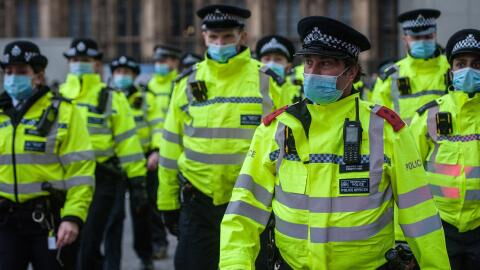The Metropolitan Police and the Avon and Somerset force used undue force in their management of the vigil for Sarah Everard who was murdered in March.
Discover our latest podcast
This is part of the findings of a parliamentary inquiry into the handling of that protest in London as well as the 'kill the bill' march in Bristol.
The report says both forces were wrong in their application of lockdown laws and failed to show they understood their ‘legal duties’ in respect of protests.
Widespread criticism
The Met Police came under fire for its handling of the vigil in Clapham in memory of Everard who was found dead after disappearing while walking home.
A serving police officer at the time, admitted to her kidnap and rape, and has also pleaded guilty to her murder.
The vigil turned violent when police tried to enforce lockdown rules against public gatherings.
One of the protestors who was pictured bundled to the ground by an officer has threatened legal action against the police force unless they withdraw the Covid fine she had been levied with.
The report said the Met Police could have been more circumspect in their interaction with protestors judging by the emotional nature of the vigil;
The Clapham gathering on 13 March was essentially of women to mourn the death of Sarah Everard, who it is alleged was killed by a police officer, and to make the point that our streets should be safe for women after dark. Therefore, sensitive policing as with other UK gatherings was appropriate. However, the MPS switched from an observational presence to a more physical police intervention after 18.30 and officers reported verbal abuse.
We did nothing wrong
However, the Metropolitan Police said officers could not have acted any other way under the circumstances they faced at these protests. Met Police Commissioner Louisa Rolfe said:
She stands by the actions of those officers who policed the events on Clapham Common. (We were) met with an extraordinarily challenging circumstance and followed national guidance…taking enforcement action as a very last resort.
Kill the Bill marches were organised to protest against powers in the Police, Crime, Sentencing and Courts Bill (PCSC), which would impose controversial 'conditions' on demonstrations.















